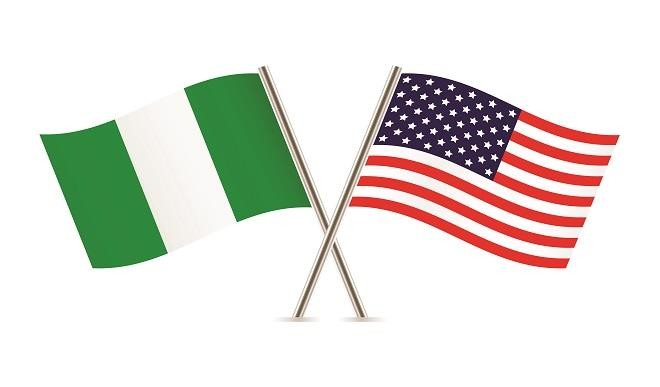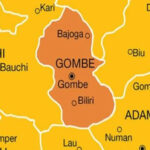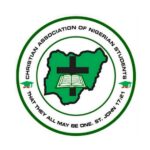
The trouble with labeling anything American English these days is that American English is now actually international English, which is unrelentingly diluting even British English at an alarming rate. I once read the story of a starry-eyed British linguist who came to America to study how American English deviates from British English.
Between the period of his research and the time of the publication of his book, the expressions he identified as uniquely American, which he had hoped would amuse and amaze British speakers, had become so commonplace that many British readers wondered what the point of his book was.
Today, British English has become so thoroughly Americanized that one has to be really careful when differentiating between the two varieties of English. Perhaps, we can rephrase George Bernard Shaw and say America and England have now become two countries that are increasingly being united by a common language. That is why it no longer makes any sense to learn British English these days since the British are themselves relentlessly Americanizing their English.
Having said that, it is still possible to isolate expressions that are peculiarly American and British. And there are instances when Nigerian English brings these two old varieties in a creative, if improper, linguistic conversation.
“Torchlight.”Perhaps the best example I can think of is the word “torchlight,” which Nigerians use to denote a small portable battery-powered electric lamp.
The British word for the same object is simply “torch” and the American name for it is “flashlight.” So Nigerians took the British “torch” and combined it with the American “light” to produce a unique word that is both British and American-and neither British nor American! Of course, “torchlight” also exists as a separate word in both British and American English, but it only refers to the light produced by a flashlight-or a torch, if you will.
“Short-knicker.”The word “short-knicker” belongs in this category. It is also derived from mixing American and British English. “Shorts” is the preferred American word for trousers that end at or above the knee. The British prefer “knickers,” although as I said earlier, American English usage is now so widely spread in Britain that these distinctions are sometimes meaningless. But the important point to note is that Nigerians formed this word when it still made sense to talk of distinct American and British English.
“International passport.”I have also found out that Nigerian use of the phrase “international passport” to refer to “passport” is traceable to America. By “passport” I am referring to the document issued by a country to its citizens, which allows them to travel abroad and reenter their home countries; I am not referring to “passport photos,” which Nigerians like to call “passports”- against the conventions of British and American English. In American bureaucratic circles, “international passport” is commonly used to denote non-American passports.
There is, for instance, the “International Passport Act” and an “International Passport Office Program” here in the United States. The act and the program address the passport issues of people from other countries who travel to the United States for various reasons. So “international passport” in America simply means foreign passports. Ordinary Americans do not prefix the adjective “international” when referring to their own passports. Perhaps the first Nigerians who traveled to the United States were confused by this nomenclature and passed down the confusion to later generations of Nigerians.
“Off head.”And the Nigerian English idiom “off head” seems to be traceable to the American expression “off the top of my head,” which is now also common in British English. Both expressions describe the sense of doing something with little or no preparation or forethought.
“Tight friend”/ “Oftentimes,” “re-occur,” etc.There are several expressions I was taught to avoid when I was in secondary school that I find widely used here. Some examples are: “tight friend” (instead of “close friend”), “point accusing fingers” (instead of “point fingers”), “senior/junior brother” (instead of “elder/younger brother”), “re-occur” (instead of “recur”), “oftentimes” (instead of “often”), etc.
I first noticed these expressions in my students’ essays and almost felt as if I was reading essays written by Nigerians. But it is my personal philosophy never to assume any expression to be wrong until I actually confirm this through inquiry. And, sure enough, what I thought were usage errors in my students’ essays turned out to be respectable usage patterns in American English.
“Same to you.”On many occasions, I can’t help being amused by the conflict between what Bayo Oguntuase, the language activist who wrote for the defunct Sunday Concord, identified as usage errors unique to Nigeria and what I encounter here. For instance, he once wrote that the expression “(the) same to you” as a response to an expression of goodwill is wrong. He said the correct response should be “I wish you the same.” Well, “same to you” is perfectly legitimate in American English.
“Congrats.”Oguntuase also once wrote that the word “congrats” was a Nigerian invention. That, too, is wrong. The word is the American short form of “congratulations”; Nigerians merely adopted it. Even the British now use it widely.
“I’m coming.”But the biggest surprise for me is the discovery that Americans also use the expression “I am coming” to indicate that they will be returning soon, although this usage is nonstandard even here. But I had been socialized into thinking that the expression is merely the literal translation of our Nigerian languages: na wee in Batonu, inazuwa in Hausa, mon bowa in Yoruba, etc.
“Rub minds.”I also discovered that the expression “to rub minds,” which a language columnist in Nigeria once described as uniquely Nigerian, is actually an old-fashioned American English expression. Americans now use the word “brainstorm,” which sounds rather formal, even pretentious, in Nigerian English.
“Assignment.”The notion of “assignment” as work assigned to students by a teacher didn’t come to Nigeria via British English; it came to Nigerian English through American English. Roger Blench once suggested that it was probably popularized by American Peace Corps volunteers who taught at Nigerian secondary schools early in the life of the nation. However, in contemporary American English, “homework” is now generally preferred to assignment.
“Kerosene.” British English speakers don’t call lamp oil kerosene; they call it paraffin. “Kerosene” is chiefly American English, but it’s also popular in Indian English, Australian English and New Zealand English.But British East Africans prefer “paraffin” to “kerosene.” It isn’t clear why most Nigerian English speakers aren’t even remotely familiar with the British English “paraffin” even though Nigerian English is derived from British English.
“Y’all.” The most surprising Americanism in contemporary Nigerian English is the appearance of “y’all” especially in the lect of young people on social media. This expression, which is the shortening of “you” and “all” to represent second-person plural, is often associated with the English of southern United States (called “southernism”) and African American Vernacular English. It is fascinating that the Internet has caused an American regional expression to gain traction in Nigerian English.

 Join Daily Trust WhatsApp Community For Quick Access To News and Happenings Around You.
Join Daily Trust WhatsApp Community For Quick Access To News and Happenings Around You.


